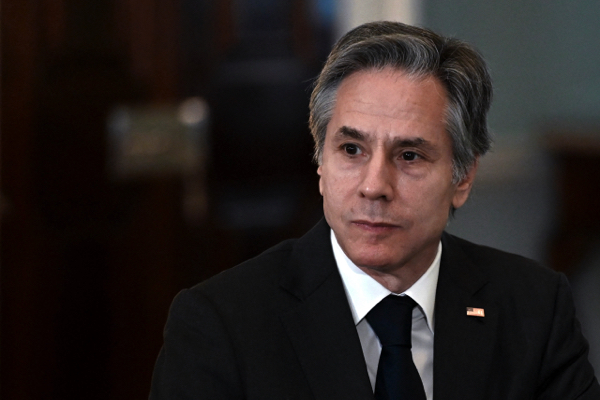National Defense Authorization Act sails through Congress with $895 billion for war and terror
12/19/2024 / By Cassie B.

- The 2025 NDAA passed in Congress with an $895 billion price tag, focusing on Pentagon funding.
- Total national security spending is projected by some experts to exceed $1.77 trillion, including debt interest and other spending.
- The bill includes pay raises for troops and funds for new military assets to counter China and other adversaries.
- Supplemental spending bills, like the $95 billion August package, further escalate military aid to Israel, Ukraine and Taiwan.
- Critics argue the NDAA prioritizes military spending over addressing domestic crises like homelessness and hunger.
The National Defense Authorization Act (NDAA) for 2025 has once again sailed through Congress, this time with an eye-watering price tag of $895 billion. While the bill passed with overwhelming bipartisan support — 85-14 in the Senate and 281-140 in the House — its sheer size and scope raise serious questions about the priorities of the Biden administration and lawmakers.
This massive spending bill, which primarily funds the Pentagon, is just the tip of the iceberg when it comes to U.S. military-related expenditures. In reality, the true cost of national security in 2025 is expected to exceed $1.77 trillion, according to veteran defense analyst Winslow Wheeler. This staggering figure includes spending from agencies like the Department of Veteran Affairs and Homeland Security, as well as the national security share of the U.S. debt interest.
The NDAA is more than just a budgetary measure; it’s a reflection of America’s enduring commitment to military dominance and interventionism. While the bill includes provisions for a 14.5 percent pay raise for junior enlisted troops and a 4.5 percent increase for all other service members, it also allocates funds for bolstering the U.S. presence in the Indo-Pacific, in addition to building new warships, aircraft and vehicles. These investments are framed as necessary to counter threats from China and other perceived adversaries, but they also perpetuate a cycle of militarization that has defined U.S. foreign policy for decades.
A legacy of overspending on war
The U.S. has a long and troubling history of overspending on war and military intervention. From the trillion-dollar wars in Iraq and Afghanistan to the ongoing proxy conflicts in Ukraine and the Middle East, American taxpayers have been footing the bill for decades of military overreach. The NDAA’s $895 billion is just the latest installment in this costly tradition.
In fact, it doesn’t even account for the full picture of U.S. military spending. Supplemental spending bills, like the $95 billion package signed by President Biden in August, further inflate the total cost of America’s military commitments. The August supplemental bill, which included military aid for Israel, Ukraine and Taiwan, underscores the Biden administration’s willingness to prioritize foreign military aid over domestic needs.
Israel received $26 billion, much of which will go toward replenishing air defenses and supporting its ongoing conflict with Gaza. Ukraine, embroiled in a proxy war with Russia, received nearly $61 billion, with much of the aid in the form of repayable loans that Kiev is unlikely to ever repay. Taiwan, a key flashpoint in U.S.-China relations, received over $8 billion in military aid, further escalating tensions in the Asia-Pacific region.
These expenditures come at a time when the U.S. faces pressing domestic challenges. Half a million Americans are homeless, millions more struggle with hunger, and countless families are unable to afford basic necessities like heating in the winter. Yet, instead of addressing these crises, the Biden administration continues to funnel billions into foreign military aid, perpetuating a cycle of conflict and dependency.
More than just a budget
The NDAA’s passage marks the 64th consecutive year that Congress has approved the bill, a testament to its status as a “must-pass” piece of legislation. However, its continued success also highlights the entrenched power of the military-industrial complex and the political inertia that sustains it. As Sen. Bernie Sanders (I-Vt.) noted during the debate, the current defense system is designed to enrich defense contractors while neglecting the needs of ordinary Americans.
The NDAA for 2025 is a stark reminder of the U.S. government’s priorities: endless war, endless spending, and endless neglect of domestic issues. While the bill’s supporters argue that it strengthens America’s security, it does so at the expense of the nation’s moral and fiscal health. Until lawmakers and the Biden administration are willing to rethink their approach to defense and foreign policy, the NDAA will remain a symbol of America’s misplaced priorities—and a burden on future generations.
Sources for this article include:
Submit a correction >>
Tagged Under:
big government, chaos, dod, finance riot, government debt, government spending, insanity, Israel, Joe Biden, military aid, money supply, national debt, national security, NDAA, pentagon, Taiwan, terror, Ukraine, White House, World War III
This article may contain statements that reflect the opinion of the author
RECENT NEWS & ARTICLES
COPYRIGHT © 2017 NATIONAL DEBT NEWS



















